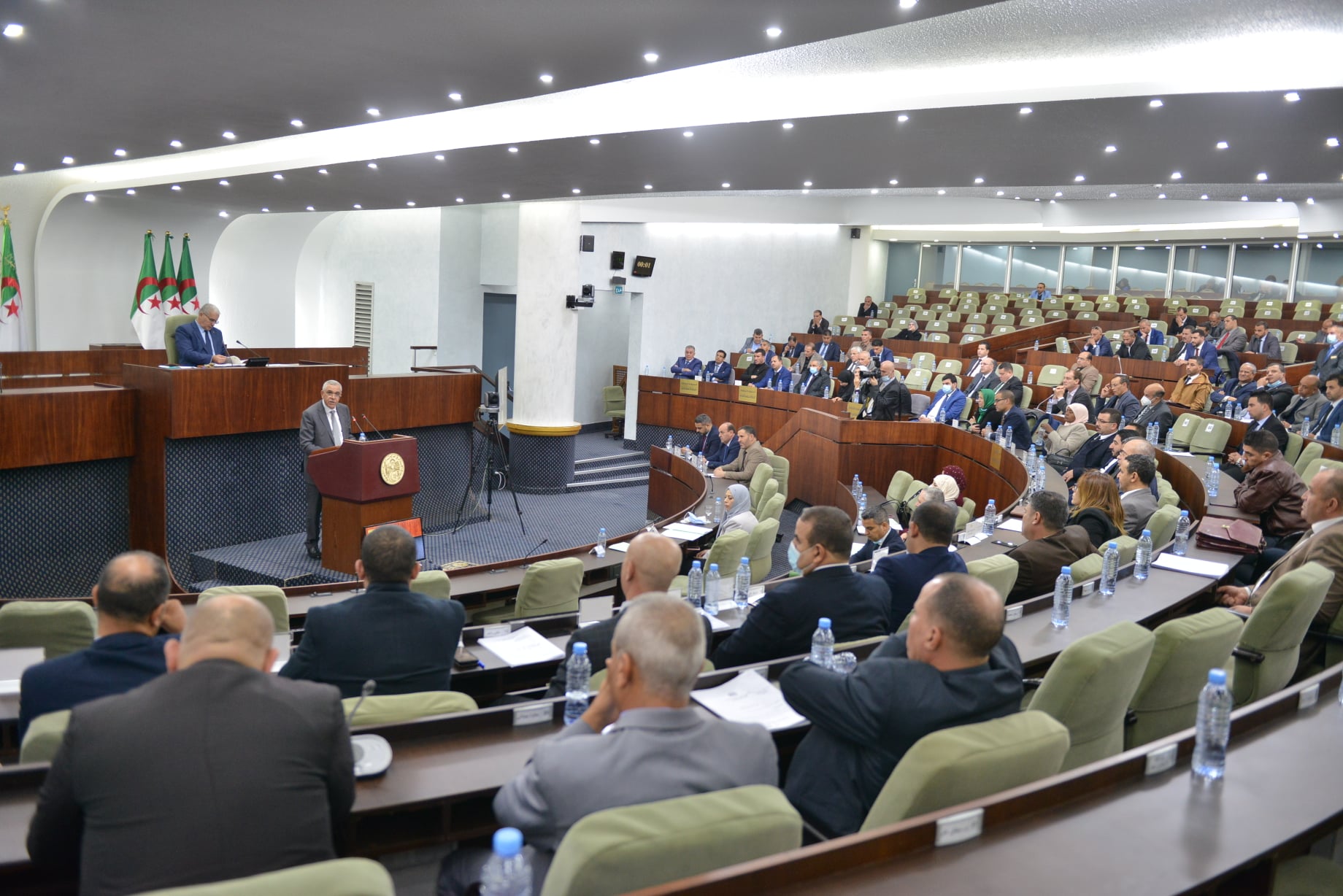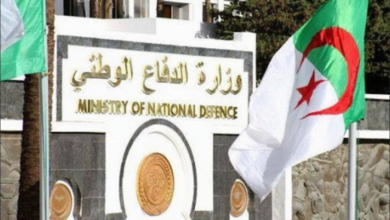
Deputies of the People’s National Assembly approved today, Wednesday, by a majority, the draft law amending and supplementing the law containing the Penal Code.
The vote took place in a public session chaired by the Speaker of the People’s National Assembly, Ibrahim Boughali, in the presence of the Minister of Justice, Keeper of the Seals, Abderrachid Tabi, and the Minister of Relations with Parliament, Basma Azouar.
Article 148 bis was amended with the inclusion of a new paragraph defining the public official, which is “every person holding a legislative, executive, or administrative position or in one of the elected local people’s councils, whether appointed or elected, permanent or temporary, paid or unpaid regardless of the rank or seniority.
A proposal for an amendment to Article 187 bis was also accepted to read, “A penalty of a 3-to-7-year imprisonment and a fine of 30 to 70 million centimes shall be imposed on anyone who unlawfully closes a public administration or institution or any other institution that provides a public service or local groups by any means whatsoever and for any purpose.”.
The draft law includes a review of the original penalties for felonies by raising the maximum prison sentence to 30 years instead of 20 years.
The second amendment relates to aggravating the penalty in the event of obstructing entry to administrations, public institutions, or local groups, or obstructing their normal functioning, or preventing their employees from carrying out their duties.
It also recognizes “severe penalties that may reach 20 years in prison and a fine of two million (2) dinars if these acts are committed by using force or threatening to use force or by more than two people or by carrying a weapon.”
Meanwhile, the draft law includes “criminalizing the phenomenon of illegal exploitation of the public road, such as car parking against a fee and without a license from the competent administrative authority, as it stipulates a penalty of imprisonment from 6 months to two years and a fine of 25,000 DA to 200,000 DA with the confiscation of the generated profit.”
The amendment contained in the same draft includes tightening penalties in the crime related to non-implementation of judicial rulings in order to achieve the necessary deterrence for acts related to the public official’s use of his authority and his job to stop the implementation of a judicial ruling, abstaining, objecting or intentionally obstructing it, as it is proposed to “raise the penalty for this crime to become imprisonment from two years to 5 years and a fine of 200,000 to 500,000 dinars to match the seriousness of these acts.”





